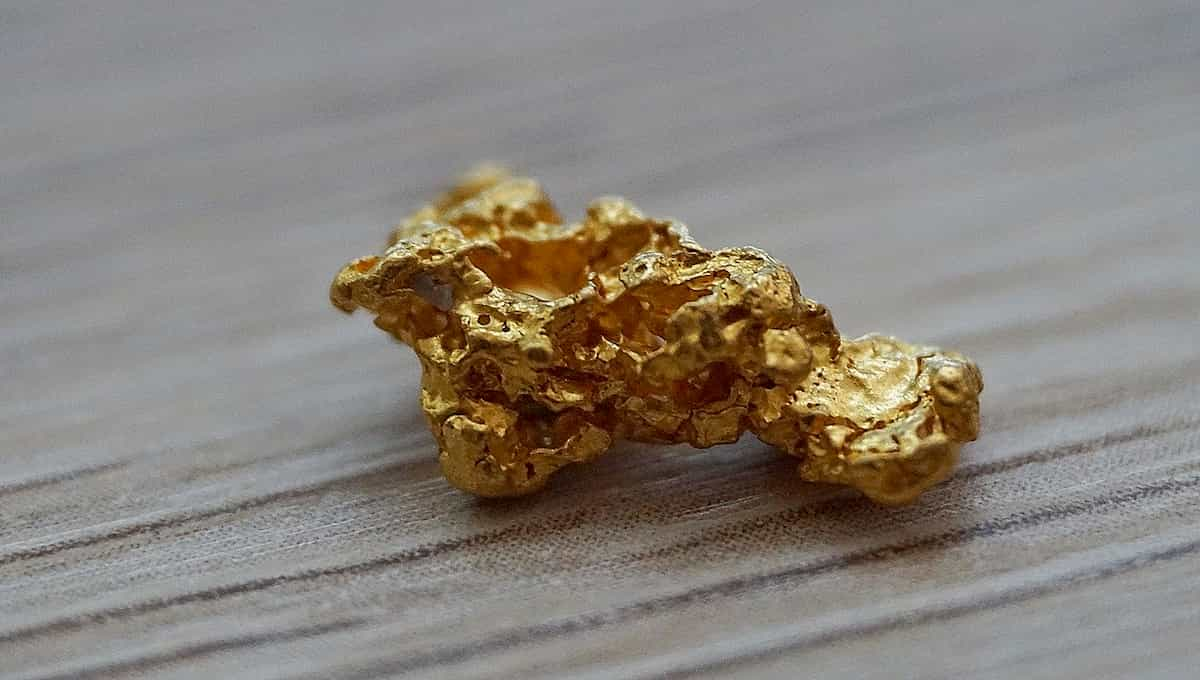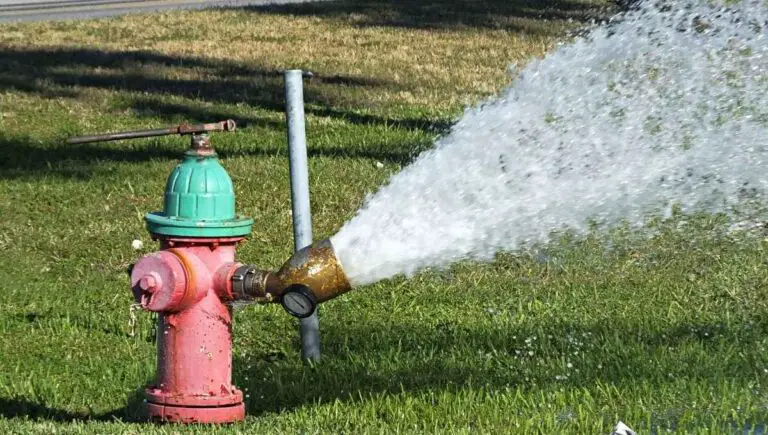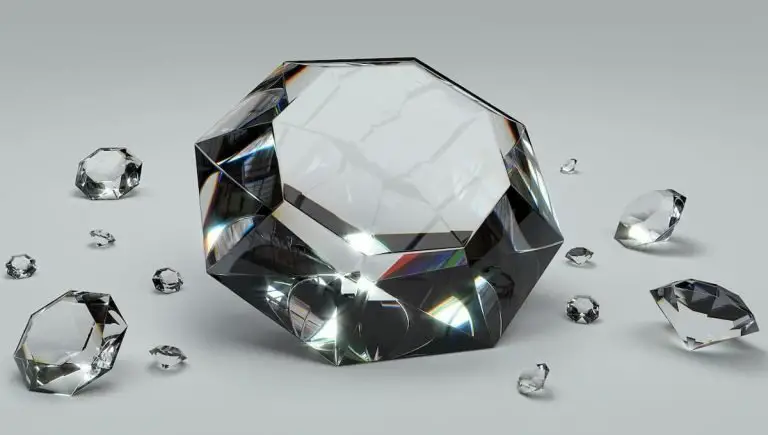How to Find Gold in Your Backyard and Strike It Rich

Do you fancy yourself a gold-nugget hunter or an amateur prospector in search of glittering ore? If you’ve caught a severe case of gold fever and think you can find hidden treasures on your property, here’s how to find gold in your backyard.
Those who are clued up on their history will know all about the California Gold Rush of 1848 that sparked people’s quest to make fortunes from the precious mineral. It was a time where people struck it lucky while others spent their life savings searching for the highly sought-after commodity.
If you want to know, “can I find gold in my backyard?”. Yes, you can, but it’s not a quick or easy venture. However, in today’s world, technology and updated techniques have helped to speed up the process of finding gold. Still, the job requires immense patience, basic knowledge about gold and gold excavation, and realistic expectations.
If you’re searching for gold in your backyard or possibly even diamonds, you probably won’t come across millions of dollars worth of the stuff. However, you might find a beautiful nugget or flake that you can hold onto as an ornament. Unlike the past, casually hunting in your yard is an inexpensive sport or part-time hobby but can become more costly, the more you invest in the activity.
Is There Gold in My Backyard?
Before you begin asking questions on how to find gold in your own backyard, you should be inquiring about whether there is a chance of uncovering deposits of gold found in backyards.
While finding gold isn’t a dime-a-dozen, the mineral can be found in 50 states across America, so it’s possible to stumble upon small nuggets, flakes, or dust while shoveling dirt in your yard.
That said, you’re more likely to find gold if you live in or near the following:
- Places that excavated the commodity in large amounts in the past. I.e., during the previously mentioned Gold Rush. You are more likely to find gold here than to discover an untapped gold mine somewhere else.
- Near to streams and rivers. Gold is found in gravel bars mixed with sediments, rocks, and other materials.
- Some mountainous regions are also said to be rich with gold. Depending on the types of rocks native to the area, you might find gold trapped in them. However, the task requires the use of specific tools and is better suited for non-amateurs.
- Other areas where you may find the glittery mineral is land that was once underwater or if you’re close to a delta.
How to Find Real Gold in Your Backyard
Before you start digging, it’s important to note a few things about the beloved metal. First, are the more apparent characteristics: gold is rare, small, and hard to find because it’s hidden underneath layers-upon-layers of soil and sand.
Interestingly, gold is one of the heaviest of the earth’s minerals, said to be 19 times heavier than water. This means that it’ll sink to the bottom of the ground and relocate even further down during geological disruptions, such as rainfall, storms, and hurricanes.
So if you think you’ll find gold on the surface of the soil, prepare for disappointment. The chance that you’ll find anything in your backyard is probably after long hours of physical toil.
If you’ve found something glittery in the soil, check first before you start telling people, “I found gold in my backyard!”. This is due to gold often being wrongly identified with pyrite. Pyrite or ‘fool’s gold,’ as it’s commonly referred to, is actually a type of sylphide mineral and not a metal, that tends to be mistaken for the real thing.
Ultimately, pyrite or ‘fools’ gold is flashy and pretty to look at but is entirely without value.
How to Tell If You Found Gold? Here Are a Few Differentiating Factors Between Them
What does gold look like when you find it? Well here are some things to look out for when trying to identify whether or not you’ve actually found gold:
- Color: At first glance, fool’s gold appears gold but has a brassy coloring when looked at closely. Gold, on the other hand, is golden-yellow.
- Shape: Fool’s gold has a crystalline form with sharp, angular edges, while authentic gold is smooth with rounded edges.
- Smell: Fool’s gold is foul-smelling, similar to rotten eggs, while gold is completely odorless.
- Texture: Gold, particularly gold flakes, is malleable and flattens when it’s touched while fool’s gold is brittle and breaks easily. One way of testing this is to stick a pin in the cracks of the mineral and see how the metal or sulfide reacts. Real gold will dent but remains mostly intact while fake gold falls apart.
The Scratch Test
One definitive way of knowing whether the mineral you’ve uncovered is authentic or not is by administering a scratch test using copper.
Copper is softer than pyrite. Scratching pyrite with a piece of copper leaves scratches on the wire rather than the other way around. On the other hand, real gold is softer than copper and, consequently, can be scratched by it.
Why Do People Dig for Gold?
While this may sound obvious, try posing the question to your friends and family. You may get surprising answers as to why people are interested in gold hunting.
Some people look for gold for financial gain while others are budding historians in search of coins and old relics that speak of another time, to add to their collection.
Gold digging is also a hobby that people old and young can enjoy. The past time gets people outdoors, active, and for children, can keep boredom at bay during long vacations.
How to Pan for Gold in Your Backyard
The stereotype people usually have for gold prospectors in this day and age is metal detector-wielding individuals who spend thousands of dollars on modern equipment. Additionally, who occupy most of their time traveling from one hotspot to the next, searching for the prized commodity.
However, while many Americans relish the idea of uncovering valuable treasure to strike it rich, for many, it’s an inexpensive, family activity that requires the simplest of home and garden tools.
That said, to find gold, you don’t just go scratching around in the dirt; there’s a technique to use on how to dig for gold in your backyard.
One way of finding gold in backyards is by panning. The bowl or the pan is a useful gold-trapping device that requires some skill to use. However, if implemented correctly, this method can increase your chances of finding gold coins in your backyard.
A shallow pan is all you require for this activity. However, there are other tools you can use to make the task easier, such as gold panning sieve. A gold panning sieve helps to remove larger rocks and stone from the soil.
What Is Panning, And Why Do People Do It?
In the old days where modern equipment, such as metal detectors, didn’t exist, people extracted gold from the soil using water and machines called dredges, which were massive, having to be operated by a group of men and women.
While not nearly as large an operation, when you pan in your backyard, you’ll use similar techniques in that gold is uncovered by submerging earth in water. While tricky and time-consuming, finding gold in your backyard using this method is possible.
It’s common knowledge that gold is heavy, more substantial than the soil and water in which it sits. For this reason, panning is useful in a gold-filled area. The idea is to swirl the wet dirt around so that lighter materials float while the gold sinks to the bottom.
Step-By-Step Instructions on Mining In Your Backyard While Panning
Step One
Fill a shallow pan two-thirds of the way full, then submerge the pan just below the surface of the water.
Step Two
Shake the pan vigorously numerous times, making sure that the materials aren’t washed out in the process.
Step Three
Spin the pan in a gentle, circular motion – this movement will help to dissolve or wash away clay and other unwanted sediments that don’t contain gold.
Step Four
Clean and remove larger rocks so that all that’s left is sand, and hopefully, gold.
How to Detect Gold in Soil

There are other ways of finding gold in your garden if you aren’t thrilled at the idea of spending hours sifting through soil and getting soaked.
Panning might render positive results, but it can be a slow and arduous process. It’s also a far cry from the idealized notion of “gold hunting” that Indiana Jones popularized.
At the same time, you might want to venture further from your backyard, and using a metal detector is the best way of doing so.
Can you find gold with a metal detector? Yes, you can. And while there are numerous metal detectors available online. You should try to find a model that’s specifically designed to track gold.
How Does A Detector Work?
Metal detectors work by transmitting an electromagnetic field underground. Metal objects closeby will react by retransmitting an electromagnetic field of their own towards the surface.
Which Detectors Are Recommended For Gold Hunting?
While conventional metal detectors can be used for picking up gold several layers deep, it’s more challenging to detect, especially in trace amounts.
At the same time, gold is commonly found in mineralized soil, which may result in false signals with the machine mistaking the grounds’ minerals for metal objects – this won’t necessarily be the case when using a gold metal detector.
There are two types worth mentioning, the very low frequency (VLF) and the pulse induction (PI). While the cost of detectors varies, VLF models are generally cheaper than their counterparts. They’re also useful in finding small nuggets that are harder to track.
On the other hand, while less common, PI products are becoming more popular. If you’re covering an area with high ground mineralization, a PI model is the better pick. At the same time, the advanced technology used allows gold-hunters to probe deeper than a regular VLF model, thus bettering your odds at finding gold.
Tips On How To Find Metal Detectors For Sale That Are Good Value For the Money
If you’re new to gold hunting, ask a friend or someone who is experienced in finding gold coins in the yard and beyond. Gold prospecting is niche and highly specialized, so you should take all the help you can get, and gain essential knowledge and a better understanding of the field.
We’ve mentioned this before, but it’s important to stress again that finding a detector that’s designed specifically for finding gold will make nugget hunting not just easier but fun.
You should first test the capabilities of prospective models with sample gold before you take it home to see how well the machine “sounds-off” the pieces of gold.
Invest in a model that discriminates between other metals and trash, which is a huge time-saver because you won’t be digging up the minerals that you don’t actually want.
Before you go out in search of old mines and hot spots, you should first learn how to use your machine. It’s not complicated to use, but you do need some experience to operate it smoothly. A widespread practice is to bury gold pieces and other metal objects in your yard, and then to uncover them using your new device.
Additional Accessories You Will Need
Earphones
Metal or gold detectors emit a beep signal that lets you know when you’ve struck gold.
Earphones are necessary because they cancel out distractions and help you to focus and hear the signal, which may be challenging to hear otherwise.
At the same time, you might be in an area where noise pollution is a concern. Don a pair of headphones while enjoying your fun, so that you don’t disturb others.
Shovels
Your metal detector may have performed the hard work for you. However, unless the gold you’ve found is at surface level, you’re going to have to indulge in some physical labor.
Invest in a quality shovel, and dig up the fruits of your labor.
Claw Tools
Claw tools extend to remove rocks that are in your path, thus preventing you from having to constantly bend over.
Canisters
While finding gold isn’t guaranteed, you will want somewhere to store your treasures and keep them safe.
Towels
A detector works best if it’s cleaned and looked after. After your gold-hunting, clean debris off the bottom of the device.
Best Rated Metal Detectors for Gold
Can I find gold in my backyard? If you aren’t sure where to start your search, take a look at the below-recommended products from Amazon.
RM RicoMax (Suitable For Adults And Children)
The RM RicoMax can detect all manner of metals, including gold, bronze, aluminum, and iron.
Features Include:
- Highly-functional and easy-to-use: includes switch modes and an LCD control box that helps you to refine and simplify your search
- Sizeable and waterproof search coil that makes gold-hunting more efficient.
- Child-friendly, expose your offspring to the excitement of treasure hunting (with supervision).
Bounty Hunter TK4 Tracker
Highly sensitive in tracking metal in the most extreme conditions, and is a device that’s suitable for beginners and novices alike.
Features Include:
- 6.7 kHz operating frequency
- A preset mode that neutralizes response to highly mineralized soil
- Differentiates between unwanted metal targets and gold.
Bounty Hunter Gold Digger Metal Detector
Detects various kinds of cold, from old relics, coins, nuggets, and more.
Features include:
- All-metal modes and trash control allow you to refine your search to include only the valuable metal that you want.
- Highly capable: can trace coins up to six inches deep and larger objects by up to two inches.
- Includes high-quality headphones and certified frustration-free packaging.
Garrett AT Gold Waterproof Metal Detector
High-tech equipment for coin, relic, and jewelry, and will assist in digging for gold in your own backyard.
Features Include:
- Target ID cursor segments, iron discrimination segments, sensitivity/depth adjustments, electronic pinpointing, and more.
- It comes with headphones, a pro pointer, and AA batteries.
- Two-year warranty guaranteed.
Here’s How to Know If There Is Gold In Your Land
Could there be gold in my backyard and surrounding areas, can you find gold in your backyard, and how do I know if there’s gold on my land worth looking for? This section aims to answer these questions and more.
If you’re an experienced metal detector, you probably know that the key to finding gold isn’t to search for the mineral blindly, but by surveying the area and searching for indicators, such as rock formations that hold gold.
However, it’s important to note that these indicators vary from location-to-location, and if they’re present in the area, there’s no guarantee that you’ll unearth these glittery treasures.
Here are some indicators that may prove fruitful in your gold-hunting expedition:
- Lighter-colored rocks
Caused by acidic mineral solutions, rocks that are differently colored to the rest could spell for gold waiting to be discovered.
- Quartz
Your chances of finding gold increase if you happen across quartz because the crystalline mineral is known to encase gold nuggets. Quartz accumulates in river beds, as well as hillsides in large quantities. It’s white coloring easily identifies quartz.
- Alluvium
Alluvium is a collective term that refers to soil, sand, gravel, clay, and other detritus left over by flowing water. Due to the heaviness of gold in general, you may find gold at the bottom of these deposit heaps.
- Host Rocks
Depending on where you’re based, there are host rocks where you may find gold between the cracks. These vary, so it’s best to look up which are specific to your area.
What to Do if You Find Gold on Your Property
“California couple finds gold coins in backyard.”
The above headliner was on the news for months. The story about the gold nuggets found in a California backyard goes as follows: while taking their dog for a casual stroll, one lucky duo stumbled across a stash of gold worth ten million dollars.
Aside from feeling envious, you might wonder about the regulations regarding finding gold coins in your backyard, is it legal to keep what you find or do you need to inform the authorities? The question on everyone’s lips is: If you find gold on your property is it yours?
In the UK, all gold coins found in yards (or just any gold in general) must be handed to The Crown (for which you’ll be remunerated handsomely). If you’re wanting to be the next family or couple finding coins in your back yard in the USA, then you’re in luck. In America, if gold nuggets are found in a backyard, the rule is, for lack of a better term, “finders-keepers.”
The thinking behind this is that the original owner is probably long deceased. Even if others can prove that they were related to the said person, the land, if it was sold, rightfully belongs to the current family, and that includes whatever’s contained within it.
However, the likelihood of finding a fortune that amasses in the millions is slim. You are more than likely to find ornamental nuggets or flakes of gold that you can boast about to your friends and put out on display.
Recap: What Are the Chances of Finding Gold in Your Backyard? What Methods Are Used to Unearth Hidden Treasures?
Some might find gold hunting a bizarre hobby in which to participate, but more Americans are joining in on the fun to make additional cash, add to their coin collection, or to unearth old relics from yesteryear. Here’s what you should do if you’re interested in becoming an amateur gold prospector or hunter.
- The question of whether you can find gold in your backyard has been asked and answered; it isn’t common. However, if you’re in a district where a successful excavation has occurred before, located near a stream, or live in mountainous areas, your chances of unearthing a nugget are higher.
- The question of how has also been accounted for: panning is an age-old technique that’s still used today while metal detecting is on the rise and is an activity enjoyed by many Americans to find gold in a backyard.
- Panning is one method of digging up gold and involves sifting through water and extracting gold from the sediment. Panning is relatively uncomplicated but does require practice and patience to perform expertly.
- Not interested in getting your hands dirty? Metal detecting is fast becoming popular.
- There are various metal detecting machines, but you should find one that’s specifically designed to pick up gold deeply embedded in the ground.
- If you search for gold in your yard using a detector, you’re more likely to find some nuggets or flakes over large quantities, which is why very low frequencies (VLF) are better suited for the task. However, PI (pulse induction) products are more beneficial if you’re covering more ground with soil that has high mineral content.
- On top of purchasing a detector, you should also buy headphones, a shovel, claw tools, and a canister if you plan to invest in gold-hunting seriously.






